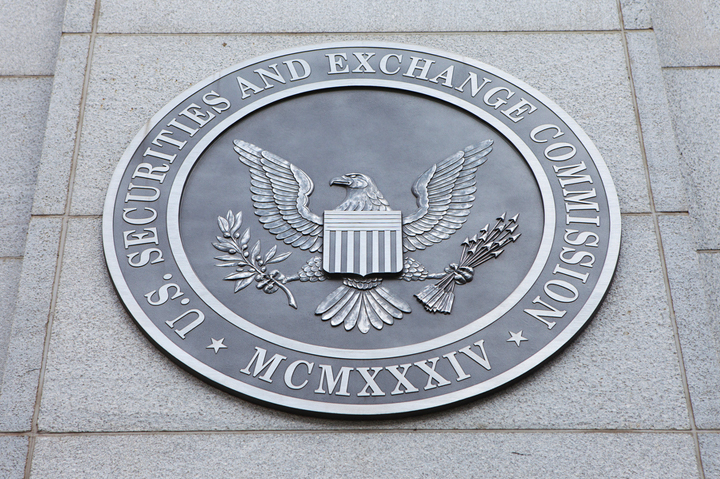March 21, 2022
SEC Proposes Mandating Disclosures on Emissions, Climate-Related Risks
If approved, the rules would significantly increase reporting requirements for publicly traded companies in the promo products industry and beyond.
Publicly traded companies listed in the U.S. in the promotional products industry and beyond could have to disclose information about their greenhouse gas emissions and climate change-driven risks to their businesses as part of proposed new regulations by the Securities Exchange Commission (SEC).
The SEC unveiled the draft proposal on Monday, March 21. The proposal will be subject to public comment for at least two months before the commission decides what, if any, regulations to finalize and put into effect. If approved, the rules would be phased-in, regulators said.

According to analysts, the proposed regulations are controversial and likely to encounter resistance from Republicans, industry groups and corporations, particularly those in the fossil fuel industry. Certain federal legislators have already spoken out against the rules.
“Today’s action hijacks the democratic process and disrespects the limited scope of authority that Congress gave to the SEC,” Pat Toomey, a Republican U.S. senator representing Pennsylvania, said in a statement released on Twitter. “This is a thinly veiled effort to have unelected financial regulators set climate and energy policy for America.”
Gary Gensler, a Democrat and chairman of the SEC, said the rules would provide investors with consistent and comparable information that would be useful in helping them make sound investment decisions. He contended that investors representing tens of trillions of dollars support climate-related disclosures because they believe climate issues directly impact financial risks.
“Investors need reliable information about climate risks to make informed investment decisions,” Gensler said in a statement. “Today’s proposal would help issuers more efficiently and effectively disclose these risks and meet investor demand, as many issuers already seek to do. Companies and investors alike would benefit from the clear rules of the road proposed in this release.”
Publicly traded firms in the promo products industry include companies that range from Top 40 outfits like Cimpress (asi/162149), BAMKO (asi/131431) and Stran & Company (asi/337725), to smaller firms like ADM Endeavors, Inc., parent firm to promo subsidiaries that include Fort Worth, TX-area distributor Just Right Products (asi/237879). Executives are keeping an eye on developments at the SEC.
Andy Shape, president/CEO of Stran, told ASI Media that the proposed SEC regulations don’t pose any risk to the company’s business as the firm has been proactive about sustainability initiatives.
“We have consistently been at the forefront of the industry to make sure we are mitigating both our carbon footprint and that of our partners,” Shape said. “I do think our self-imposed social and economic responsibilities to make the world a better place for future generations outweigh any regulatory requirements from the SEC, but we recognize the value the commission is trying to add by imposing that on other organizations that may not feel the same way. In addition, more and more investors are evaluating a company’s ESG (Environmental, Social and Governance) initiatives as part of their analysis, so we want to be aware of that now and well into the future.”
If implemented as proposed, the rules would significantly increase reporting requirements for publicly traded companies that fall within the SEC’s purview.
Today’s action hijacks the democratic process and disrespects the limited scope of authority that Congress gave to the SEC.
— Senator Pat Toomey (@SenToomey) March 21, 2022
This is a thinly-veiled effort to have unelected financial regulators set climate and energy policy for America.https://t.co/5T32GbcwOQ
For instance, companies would have to include information in SEC filings, such as annual reports, on the greenhouse gas emissions resulting directly from their operations, as well as data on indirect emissions from purchased electricity or other forms of energy.
Furthermore, companies would be required to disclose greenhouse gas emissions from upstream and downstream activities in their value chains, the SEC said. To ensure reporting is legitimate, subject companies would be made to have the information on these types of emissions certified by an independent third party.
Additionally, in certain instances, the SEC is proposing that companies report on the greenhouse gas production of their supply chains and consumers. Most of the S&P 500 would likely be compelled to report on these so-called Scope 3 emissions, according to reports.
The SEC proposed rule changes that would require registrants to include certain climate-related disclosures in their registration statements and periodic reports.
— U.S. Securities and Exchange Commission (@SECGov) March 21, 2022
Under the proposal, the SEC would require Scope 3 emission disclosure only if output of those greenhouse gasses is material, or significant to investors, or if companies outline specific targets for them.
Critics say there’s no accepted process or standard for viably gauging Scope 3 emissions.
Meanwhile, the proposed regulations would also compel publicly traded companies to include in their financial statements estimates related to the impact of certain risks, such as physical threats to their facilities/operations, due to what’s described as climate change-related increases in extreme weather like hurricanes and floods.
Subject businesses would also have to include estimates on the impact of climate-tied “transition risks,” which involve things like reducing reliance on fossil fuels and dealing with the effects of climate change.
In the statements, companies would be made to explain their long-term susceptibility to consequences of climate change and how they are addressing those issues.

Promo for the Planet is your destination for the latest news, biggest trends and best ideas to help build a more sustainable and socially-responsible industry.